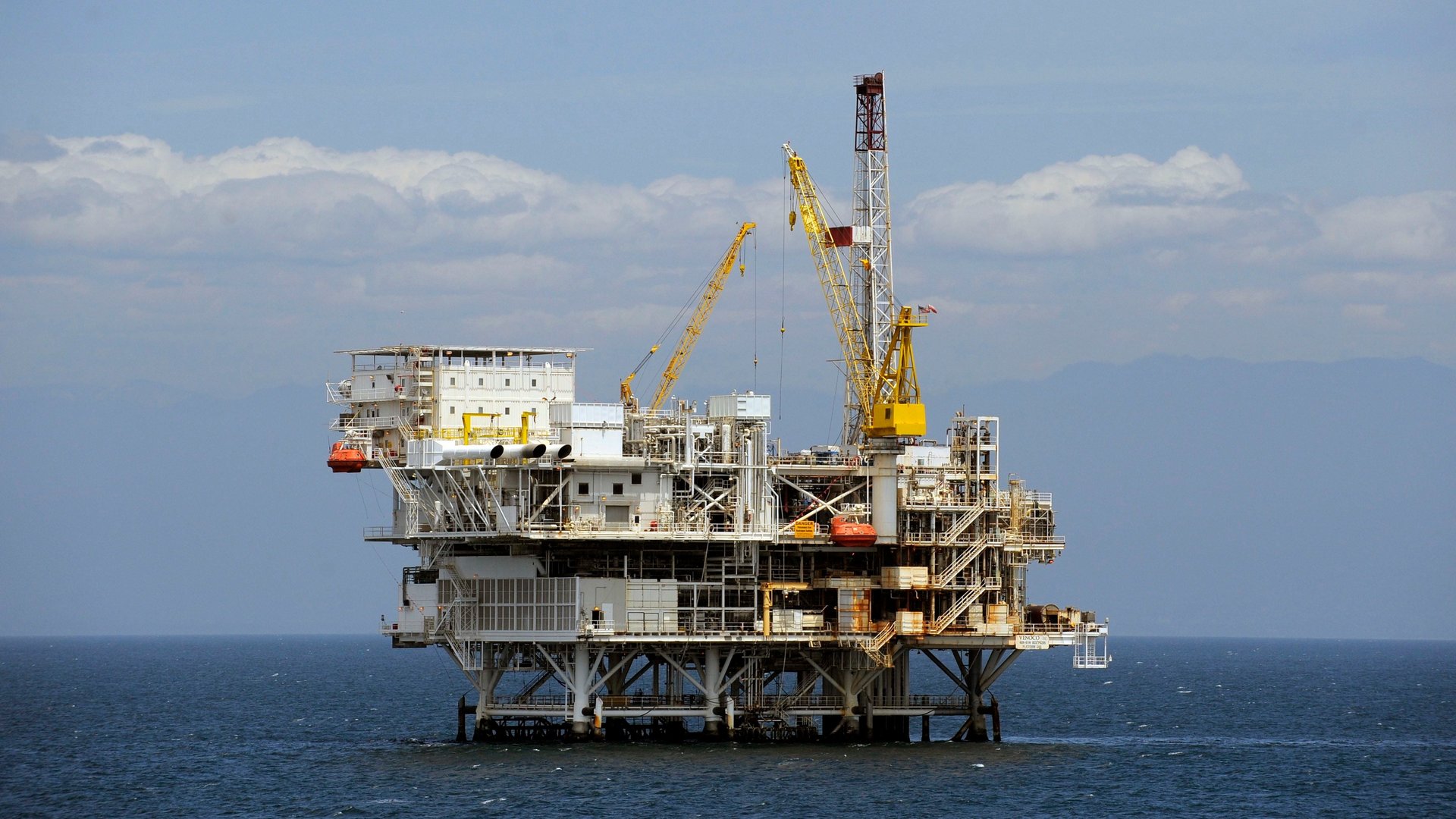California’s oil industry seems to have fracked itself in the foot
This article has been corrected.


This article has been corrected.
The oil industry had seemed on the verge of defeating attempts to regulate hydraulic fracturing, or fracking, in California. But revelations that some oil companies were already using the technology (which involves injecting chemical-laced water under high pressure to break up rock formations containing oil and natural gas) off the coast of southern California have revived a campaign to impose strict controls on it.
Offshore drilling is particularly controversial in California, where a 1969 spill off the Santa Barbara coast helped ignite the modern environmental movement and has led to repeated bans on an expansion of existing drilling. The state has the US’s largest reserves of shale oil. And yet, as the hullabaloo over fracking illustrates, state officials have remarkably little control over fracking there. “How did we not know this was happening in offshore California?” a staffer at the California Coastal Commission—the state agency that regulates coastal development—told commissioners at an agency meeting in Santa Cruz on Aug. 15. “Today I do not know how many wells have been fracked. We’re starting to investigate where and when waters have been fracked.”
That’s because over the past two years federal officials had permitted drillers Venoco and DCOR to use fracking techniques at offshore wells, according to an investigation by the non-profit news site Truthout. But the officials didn’t tell the Coastal Commission because they considered the modifications to existing drilling permits to be “minor.”
The uproar could tip the regulatory balance against oil companies. “The revelations beg the question of what other information is out there and reinforce the urgent need for an immediate time out on fracking in California,” Rose Braz, climate campaign director for environmental group the Center for Biological Diversity (CBD), told Quartz in an email. Jana Zimmer, a member of the Coastal Commission board, suggested at the Santa Cruz meeting that drillers be required to submit any offshore fracking plans for approval by either county governments or the commission itself. And a commission staff member said the agency is now asking drillers if they plan any future fracking.
The revelations could also give a boost to an effort by state legislators to give the Coastal Commission the power to levy fines without going through a court. And environmental groups are renewing efforts to pass Senate Bill 4, which would require drillers to disclose the chemicals used in fracking fluid, notify nearby residents, and require a scientific study on the risks of fracking before it’s allowed to continue in the state.
Correction: An earlier version of this story stated that the Center for Biological Diversity supports Senate Bill 4, which would regulate fracking. Rather, the group supports a ban or moratorium on fracking.